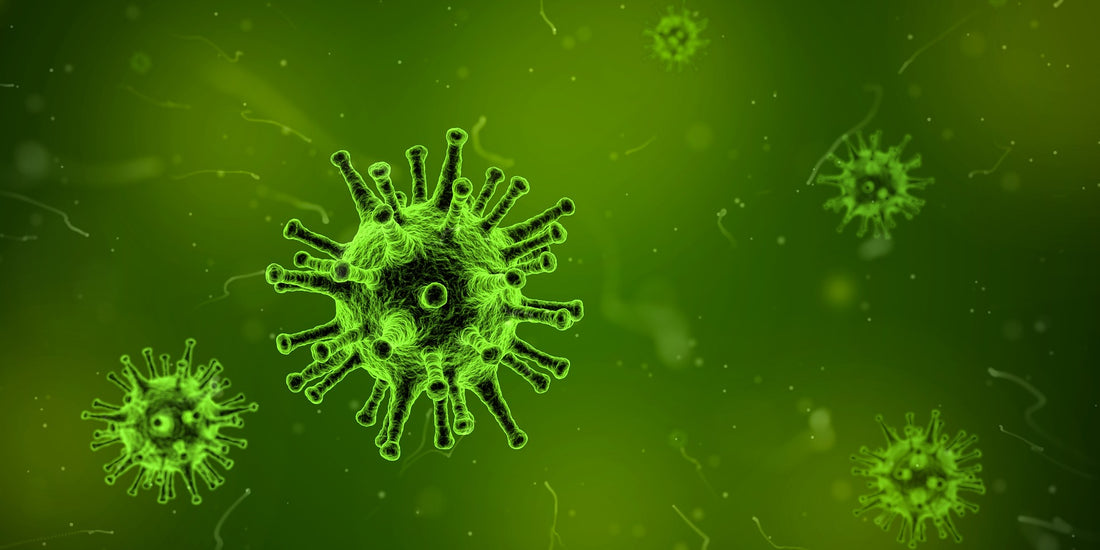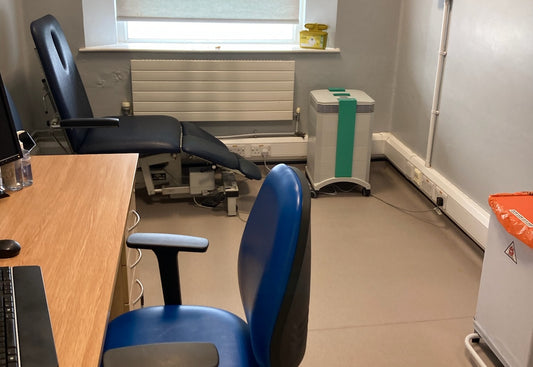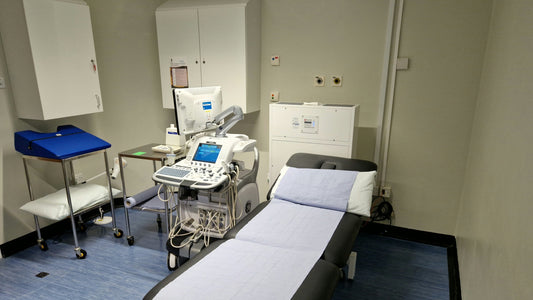In this post we discuss the difference between H13 vs H14 HEPA filtration, and answer some of the most frequently asked questions regarding which of the two levels of filtration is preferable in an air purifier and why. This post provides an overview of why air filtration is an important measure to mitigate the risk of airborne contamination and airborne viral transmission, how HEPA filters can reduce this risk, and which class of HEPA filter has shown the highest overall efficacy in achieving this.
Which class of air filters - H13 vs H14 filtration - provide the most effective protection against airborne viral contamination and transmission?
The global outbreak of Covid-19 has resulted in a dramatic increase in demand for air filtration systems and interest in how their adoption can support in reducing the risk of viral transmission in indoor settings.
There are a wide range of systems available on the market that show differing levels of efficacy in capturing airborne viruses and bacteria, and with the air filtration industry currently unregulated in the UK, it can be challenging to determine not only which systems have been proven to show sufficient efficacy to use the ‘High Efficacy Particulate Air’ (HEPA) label, but also which class of HEPA filters – H13 vs H14 filtration – have a higher long-term efficacy.
How is COVID-19 transmitted?
Research conducted around the world is helping us to better understand how a viral infection such as Covid-19 is transmitted.
Evidence from the US Centres for Disease Control and Protection shows that under certain conditions, people infected with Covid-19 pass the virus on to those over 6ft away, and that this primarily occurs in enclosed spaces with poor ventilation.[1] The World Health Organisation similarly published guidance that highlighted airborne transmission of Covid-19 occuring in crowded indoor settings with poor ventilation.[2]
In light of this, there has been increasing recognition that air filtration and ventilation technologies can act as an effective measure to reduce the risk of certain viral transmission in indoor settings. For example, the German government has advised the consistent and appropriate use of ventilation technologies to reduce transmission risk.[3]
How can HEPA filters reduce the risk of viral transmission?
HEPA filters can reduce the risk of viral transmission in indoor spaces by capturing airborne viruses before they reach an individual.
A HEPA filter - by definition - should be able to remove more than 99.97% of particles at 0.3 microns (μm) in size, and a higher filtration efficiency for particulates larger or smaller than 0.3 μm.
The European Norm 1822 classification provides a test standard to classify filters into different efficacy classes. The highest classes of HEPA filters are H13 and H14, which are considered medical grade quality filters, as they are able to capture significant percentages of particles smaller than 0.3 μm in size.
In order to provide sufficient protection against the risk of airborne viral transmission, an air filtration systems has to meet three key performance characteristics:
- A whole system high filtration efficiency, to ensure consistent and thorough purification;
- A high air flow rate at the high filtration efficiency rate, to ensure a high enough volume of air is moved;
- No leakage, to ensure unfiltered air doesn’t 'leak' back into the room.
While both H13 vs H14 filters are considered to be medical grade, and have a high efficacy in capturing ultra fine particles, there are important differences between H13 vs H14 filtration that has to be considered due to their impact on overall effectiveness.
As summarised in the following table, the increased density of an H14 filter means that less air is able to flow through the filter and therefore the system is able to purify a lower volume of indoor air. Similarly, the higher density of H14 filters compared to H13 filters means that there is a significantly higher electricity consumption as well as a higher risk for leakage in the air purifier that is fitted with H14 filters. Such leakage can quickly reduce the H14 air purifier's overall /whole-system filtration efficacy to 85% or less.

What class of filter does the IQAir Cleanroom use?
The IQAir Cleanroom air purifiers contain leakage free H13 HEPA filter. In April 2020, the IQAir Cleanroom H13 series was subjected to a professional virus test to confirm that its H13 filter removes airborne viruses from a room effectively. The test was carried out according to a standardised procedure by the accredited, independent European test laboratory, Airmid Healthgroup.
Test results confirmed that the IQAir Cleanroom series can reduce viral contamination by over 99.9% within just 10 minutes in a room of nearly 30m3.
Conclusion
Only a professional air purifier which offers high filtration efficacy, high air flow rate and leakage free performance, can significantly reduce airborne viral contamination and transmission within indoor settings, and thus can provide protection against airborne viruses such as Covid-19.
Measures such as air filtration have become increasingly important in light of the Covid-19 pandemic, particularly during the colder months when ventilation is reduced in indoor settings as windows are more often kept closed. As such, it is important for anyone considering the adoption of air filtration systems to give due regard to the differences between H13 vs H14 filtration, and to understand the long-term efficacy in capturing ultra-fine particulate contamination.
[1] Centres for Disease Control and Prevention. Scientific Brief: SARS-CoV-2 and Potential Airborne Transmission. October 2020 Available at: https://www.cdc.gov/coronavirus/2019-ncov/more/scientific-brief-sars-cov-2.html
[2] World Health Organization. Transmission of SARS-CoV-2: implications for infection prevention precautions. July 2020.
[3] Opinion of the Indoor Air Hygiene Commission of the Federal Environment Agency. August 2020. Available: https://www.umweltbundesamt.de/sites/default/files/medien/2546/dokumente/irk_stellungnahme_lueften_sars-cov-2_0.pdf
[4] Zhao B et al. Air purifiers: A supplementary measure to remove airborne SARS-CoV02. Building and Environment. June 2020. Available: https://www.ncbi.nlm.nih.gov/pmc/articles/PMC7180358/




